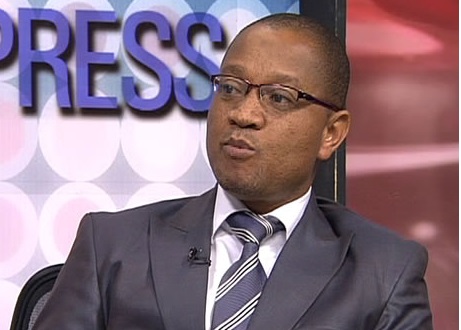Research on GH¢750m RTI implementation cost is flawed – CDD
The Centre Democratic Development (CDD), has faulted the estimated GH¢750 million as the cost for the implementation of the Right to Information (RTI) Bill.
Dr Kojo Asante, Director of Advocacy and Policy Engagement at CDD, explains that some of the considerations that determined the fiscal impact of the RTI implementation are misplaced.
According to the research by the Director of Research in Parliament, Mohammed Nyasi, the cost for establishing the RTI Commission and associated administrative activities will cost GH¢750,746,327.48 in five years.
“These costs are the costs incurred in paying salaries to all personnel and the cost involved in acquiring logistics, maintaining assets and rent as well as the cost of employing the Executive Secretary to efficiently manage and operate the office,” the research said.
However, speaking on PM Express, a current affairs programme on Multi TV, Dr Asante said although fiscal impacts of policies are among some of the things CDD has been urging the Legislature to do often, the thinking that went into the cost of RTI implementation are problematic.
“First of all, this is supposedly a five-year budget [for the RTI). The Minister of Finance is not going to approve a five-year budget [for any agency].
“Also, it estimates that you are going to…set up the RTI Commission in every district all at once in one year so I think there are some permutations and estimations and underlying factors that are flawed,” Dr Asante told the host of PM Express Evans Mensah on Tuesday.
He suggested that the timing of the research finding and the cost impact discussions it has generated “just disperses the energy that we had in terms of the processes [for the RTI implementation] step-by-step.”
“If you haven’t done a proper assessment I don’t think that the calculations that have been done or the factors that are being considered is the right way to approach it,” he added.
Non-commissioned research
Speaking on the same show, Chairman of Parliament’s Legal and Constitutional Affairs Committee, Ben Abdallah Bandah, revealed that the research was not commissioned by Parliament.

Mr Bandah said Mohammed Nyasi told him that he did the fiscal impact study out of his own volition but in agreement with the Public Financial Management Act – which makes it mandatory for bills presented to Parliament to be subjected to fiscal impact analysis.
“According to him he was not commissioned to do it but he decided to do it on his own,” Mr Bandah said on PM Express.
RTI Bill update
The Coalition on the Right to Information (RTI) Ghana, the Media Coalition on RTI and Occupy Ghana recently raised concerns over the new amendment to the Bill.
Parliament last week approved an amendment to the RTI Bill which seeks to extend the date for the implementation of the Bill after it is passed.
The amendment states that the Bill has to take effect in the next succeeding year after it is approved by Parliament and assented to by the President.
But according to the groups, the latest amendment is “problematic and likely to cause unnecessary delay in the implementation of the overdue 25-year-old constitutional right.”
The Right to Information Bill was first drafted in 1999 under former president, Jerry John Rawlings.
Various advocacy groups emerged to press for the immediate passing of the Bill into law in 2002 and reviewed in 2003, 2005 and 2007.
President Addo Dankwa Akufo-Addo has said he will accent to the Bill once it has been passed by Parliament.
Source: Myjoyonline



